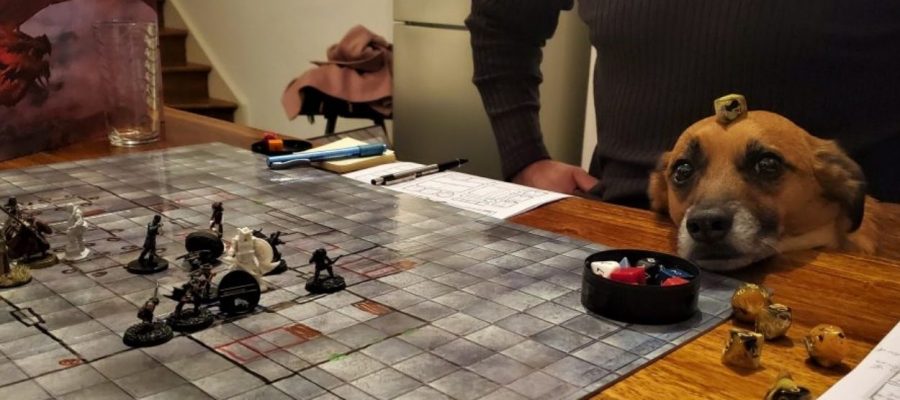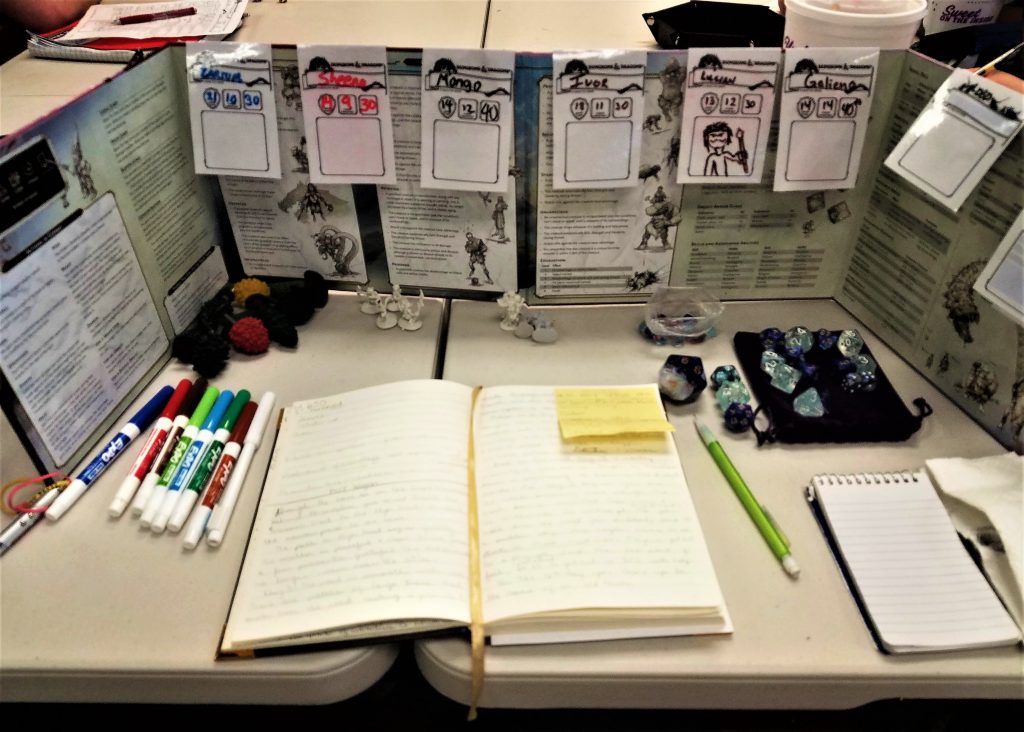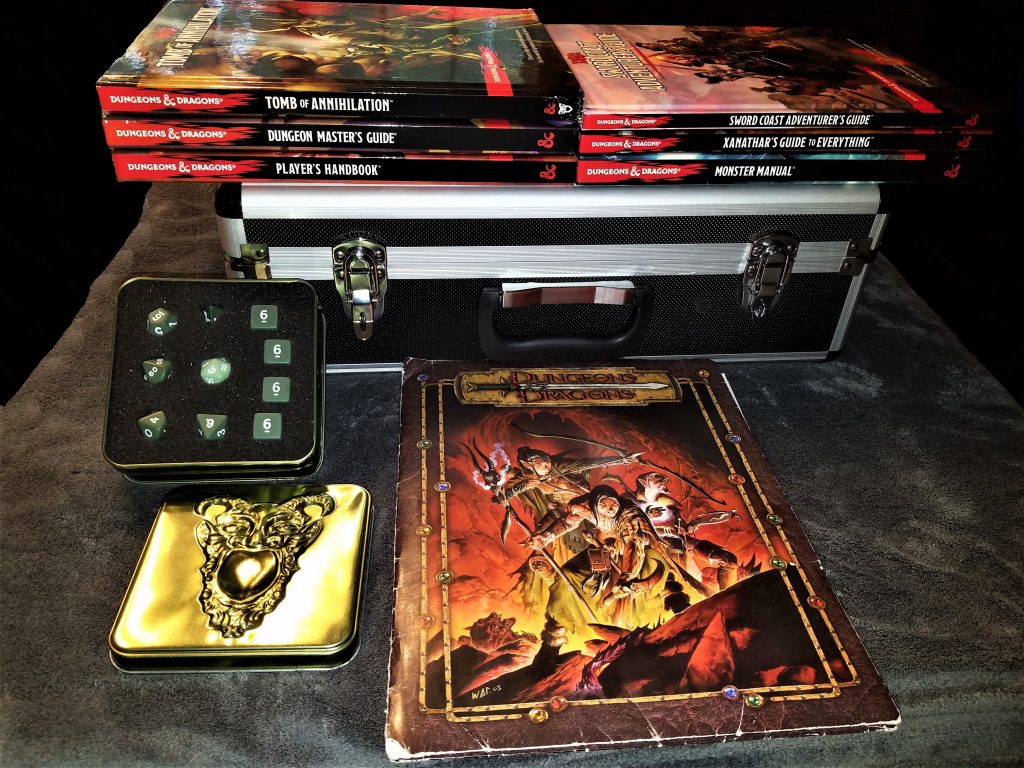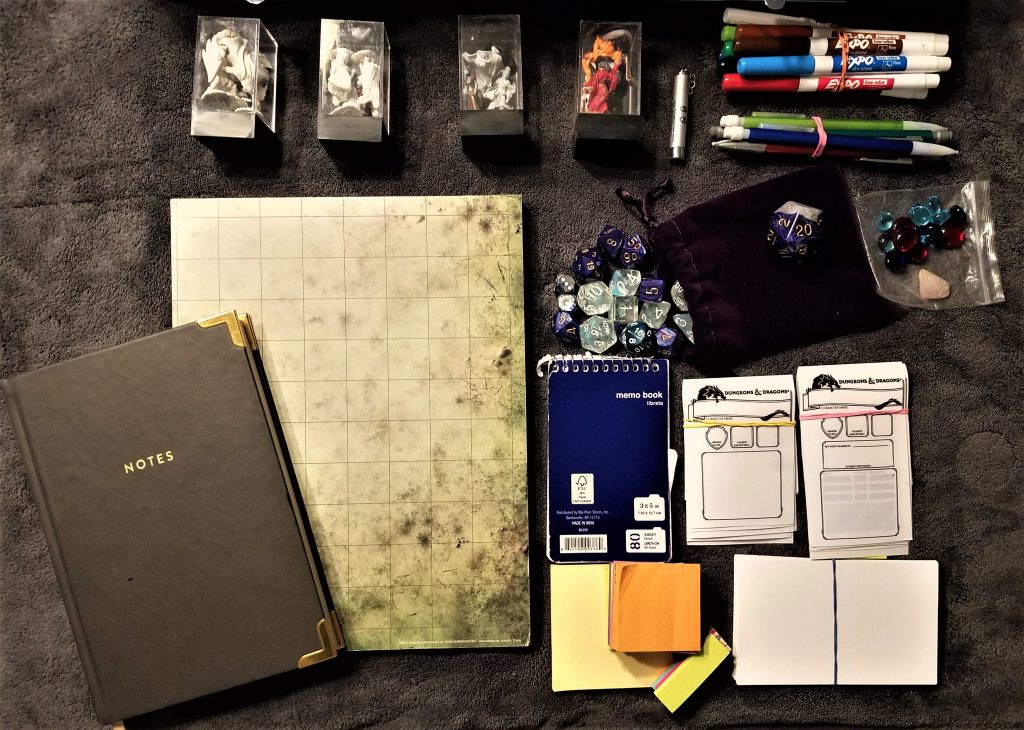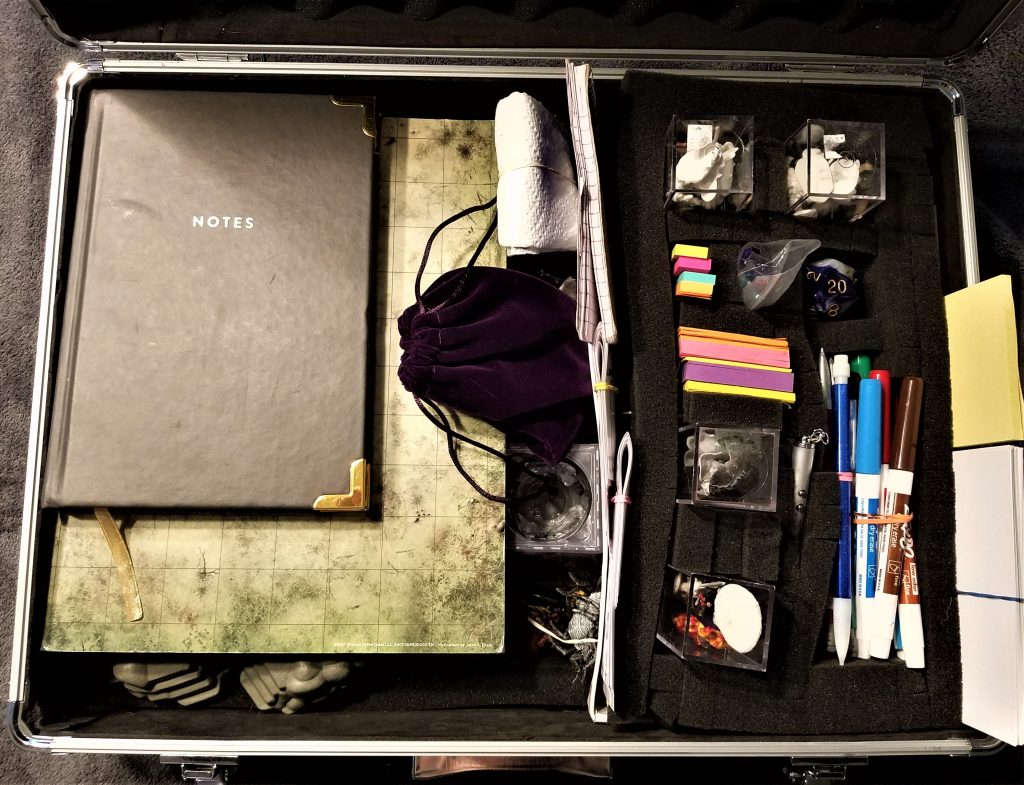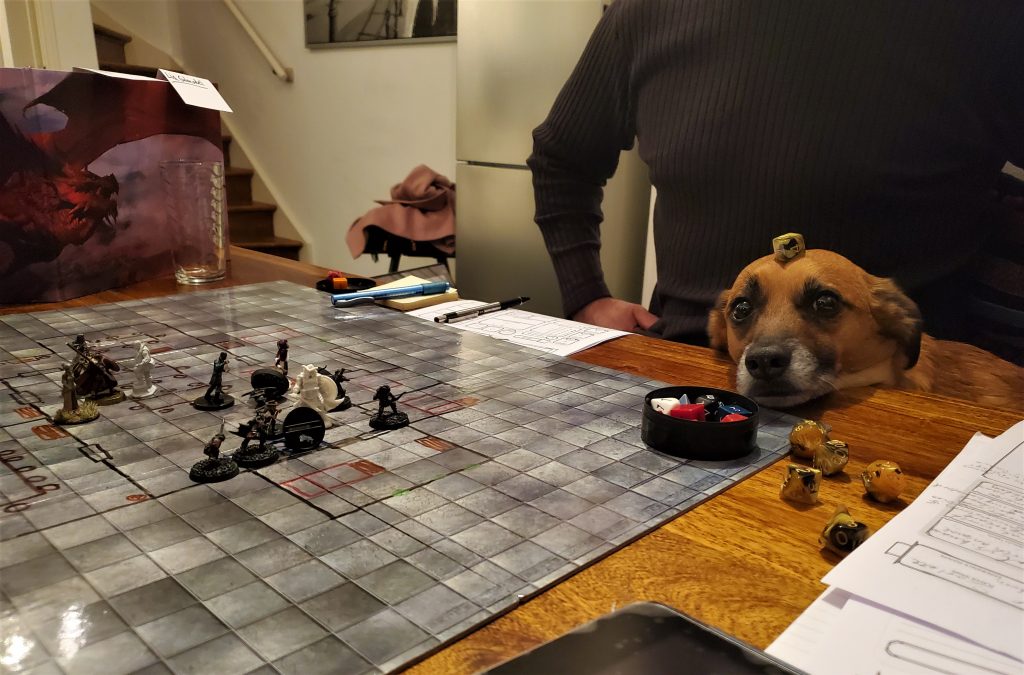Every person gets into Dungeons & Dragons in their own way. Whether they stumbled onto a game at a comic shop, learned from friends, or sought adventures out on their own, everyone does things with a personal sense of style. If you’re anything like us, you like to dive head first into anything you love. John and I have an awesome habit of fully investing into project we love, regardless of how much we know. When we first started learning about D&D, we had to learn a few lessons the hard way. The world of tabletop RPGs is vast, it can be easy to get lost in all the cool things you can buy. Before you spent your life savings on custom Hero Forge miniatures, here’s a guide to make sure you have the essentials.
Everything Players Need to Join a Game
Anyone that simply wants to play Dungeons and Dragons, you really only need a few things:
- Pencil and paper, usually a notebook plus a copy of your character sheet
- Set of dice that includes the following dice: d20, d12, d10, d8, d6, and d4. There are endless options for dice, which frequently leads to addiction. True story. A man named Kevin Cooke currently holds the world record with over 11,000 dice. I have around 8 and I’m genuinely struggling to stop buying every set I see.
- A copy of the Player’s Handbook (PHB; 5th edition)
- A miniature figure to represent your character, optional. Seriously. Buying minis is a fun but slippery slope. After only a year, I already own dozens.
When it comes to buying items of RPGs, DMs bear most of the burden. Players are responsible for knowing and becoming their character. Every race and class has their own special combination of traits and skills that help you through adventures. Becoming comfortable with your stats, spells, feats, skills, weapons, and traits will contribute to your experience. Players can go the extra mile by purchasing spell cards for their class or supplementary books for more character options ( Sword Coast Adventurer’s Guide, Xanathar’s Guide, and Volo’s Guide)
Everything a Dungeon Master Needs
Dungeon Masters are a little different. What you need as a Dungeon Master depends on a lot of factors, especially your style of DMing. For beginner DMs, many rely on what is commonly known as “theater of the mind”. This means the DM uses verbal direction and descriptive imagery in place of a map and miniatures. If this is how you plan to begin as a first-time Dungeon Master, you can rely on the same materials players use (pencil, paper, dice, and PHB).
Many of the adventure modules and hardbacks give you almost everything you need. The Dungeon Master’s Guide(DMG) is not technically essential for the first few games but it will answer a ton of questions and helps with your overall role play technique. The Monster Manual is also a great reference guide but is not technically essential. It does help greatly with better understanding monster and NPC stats and provides lots of pictures to show players.
If you’re an all-or-nothing person, like John and I, you want to create the most elaborate setups. Once you become more comfortable with DMing in a group, it becomes more tempting to expand your DM tool kit. Between following #DungeonsandDragons on Instagram and Critical Role on YouTube, the level of Dungeon Master creativity knows no bounds.
You can start your enormous collection by adding these basic but essential items:
- Dungeon Master’s Screen. These screens have may important reference points on the inside as well as helps keep your rolls, miniatures, notes and plans private.
- Dry erase map, we like the folding double-sided map, and the roll-up map
- Dry erase markers, preferably black, brown, blue, green, and red for different terrains
- Small sheets of paper, such as Post-Its, index cards, or tiny notebook spirals. This helps with keeping up with initiative and works well with the DM screen
- Glass multicolored stones, similar to Mancala stones. Small stones or beads can serve as anything: enemies on the map, markers for spells, obstacles, etc. These can be substituted with bestiary boxes or tabletop tokens if you want to be fancy.
- Laser pointer. It’s not always easy to get out from behind the DM screen to give directions.
- Miniatures. You can buy all the miniatures!!! Wizards of the Coast has perfect collections for various story lines plus character sets that include the most basic races and classes. For a more detailed guide for minis, read this article.
One of the most difficult things to bring to the table is roleplaying skills. My best advice is to fully immerse yourself into your imagination, allowing the pages to come to life from your words. You can inspire your group to incredible things, we plan to cover more DM tips in the future.
If you would like more inspiration, Matt Mercer and Critical Role are the best examples you can find. Not only do they have countless years of experience, their content features celebrities that include Joe Manganiello (True Blood), Vin Diesel (Fast & Furious), Deborah Ann Woll (True Blood), and even Elok Musk. These guys are taking the world of tabletop RPGs to the next level! We will talk tons more about this in future articles as well. If you’ve never seen or heard a game of D&D, you can watch Critical Role on YouTube or Twitch or follow their podcast here.
How to Find a Group
To be honest, it took us a really long time after we bought everything to start a game. We had no idea you could simply go to the nearest board game shop. 9/10 board game shops we have been to have a dedicated night for D&D. Many shops have nights for well-established groups and other nights for Adventurer’s League.
Adventurer’s League is an approach to D&D that allows players to join games anywhere, anytime. They use a combination of rules from the 5th edition core rulebooks and their own rules based on the variant options for character and treasure advancement found in Xanathar’s Guide to Everything. To learn more details about Adventurer’s League, you can read more here or explore their homepage.
Social media can also help. If you’re unfamiliar with the app Meetup, this website is literally designed to bring people with similar interests together. You can use their site or download the app to find people, groups, and events of any kind right in your area. We have found this to be a pretty reliable way to meet potential players. There are only a few specific Dungeons and Dragons FB groups, but most game shops have a business page that lets you connect to other gamers.
Every person plays the game differently. Do you have your own list of essential items? Share your thoughts or ideas in the comments below or tag @TwoMixers in a social media post!
